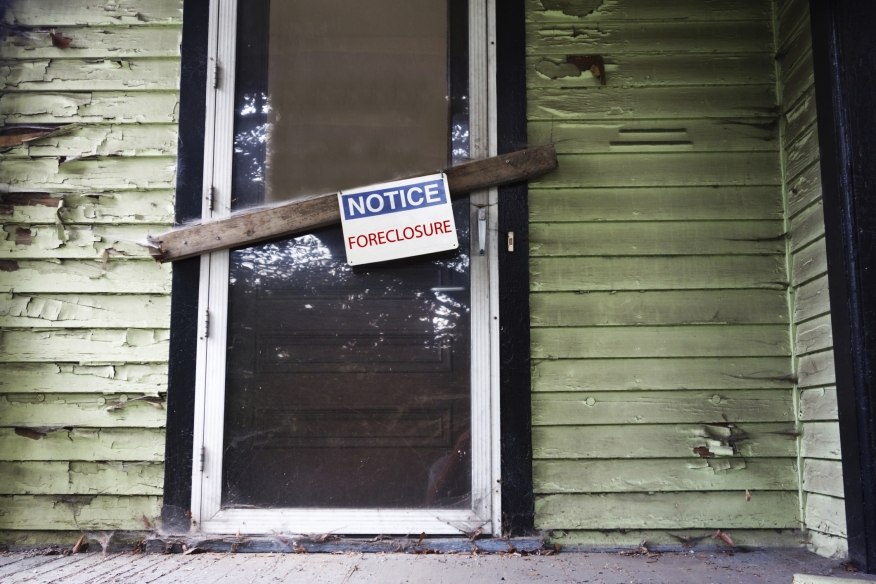New York and Indiana Take Different Approaches to Zombie Properties

In the lingo of the mortgage trade, a “zombie property” occurs when a foreclosure case has been filed but is not resolved for a period of more than three years, resulting in an abandoned structure that falls into disrepair, thus bringing blight to its neighborhood. Two states have announced new initiatives that are designed to address this issue–but their respective solutions offer extremely different approaches to the problem.
New York Gov. Andrew Cuomo’s office has issued an announcement that 11 banks, mortgage companies, and credit unions that represented nearly 70 percent of the state’s home loan originations and servicing would initiate a set of best practices to fight the problems created by the proliferation of zombie properties. As part of these best practices, the participating lenders would regularly inspect properties that fall into delinquency in order to identify if they are vacant and abandoned, and then ensure the properties are properly maintained. The lenders would also add these properties to a new state registry being developed by the New York State Department of Financial Services (NYDFS), which would then work with local officials regarding the upkeep of these properties.
"Zombie properties can bring down the economic health and safety of entire neighborhoods–but by working together we are taking steps to help strengthen and repair local communities," said Cuomo in a press statement. "We commend these companies for working with us to address this problem. This action is a win-win that will benefit communities and mortgage owners across the state, and should serve as a model for protecting neighborhoods from the dangers of vacant and abandoned properties in the future."
As part of the new best practices announced today, the lenders and/or servicers will be responsible for property’s condition to ensure it compliant with the state’s maintenance code. The best practices are applicable to first-lien mortgages on residential properties and subject to state laws and insurer and investor guidelines.
Cuomo’s announcement included input from New York Attorney General Eric T. Schneiderman, whose office took a unilateral approach to the subject in February through his advocacy of the proposed Abandoned Property Neighborhood Relief Act. Although Schneiderman’s input to the Cuomo announcement included his praise that this development was “a welcome step forward in our fight to stop the epidemic of vacant zombie homes,” his call for the legislature to approve the Abandoned Property Neighborhood Relief Act was conspicuously not echoed by either Cuomo or NYDFS Superintendent Benjamin Lawsky.
While the New York approach bypassed the legislature, Indiana took a statehouse approach in its approach to dealing with this problem.
The Indiana legislation, which was signed on May 6, is designed to rewrite the state’s tax sale system in relation to abandoned and vacant housing. Previously, someone that buys an abandoned house at a tax sale, they would need to wait out a redemption period before acquiring the deed, a process that could run six to 12 months. Because the buyer is not technically the owner, that person has few incentives to invest in the property’s maintenance–especially since the original owner was still able to pay off any delinquent taxes and fee on the property and regain control, taking advantage of whatever repairs and improvements were made by the buyer.
Under the new law, a code enforcement hearing authority can declare properties vacant, thus scheduled an auction at the next tax sale and the ability for a buyer to instantly acquire the deed, thus eliminating the redemption period.
The new legislation also prohibits municipalities from enacting their own ordinances on zombie properties, which the law’s author acknowledged was meant to protect lien holders from being forced to maintain the vacant houses.
"Once a bank goes from being a lien holder to an owner, then of course they should be responsible for the upkeep of the home," said State Sen. Jim Merritt (R-IN) in an interview with The Indianapolis Star. "If they're just a lien holder, then they're just like everybody else, including the county—there's a lineup of who gets paid and how the bills are settled. I don't believe that those lien holders—and it's not just the banks—are responsible for maintenance and upkeep of a piece of property."
However, that provision effectively neutralizes an effort before the Indianapolis City Council that would have required the lender that issued a foreclosure notice on a vacant home to take on the responsibilities of being a property owner, including maintenance duties. The ordinance would have also created a registry similar to the one being created in New York–the new Indiana law makes no such provision.
Merritt also courted controversy when the original version of his bill included a provision to shut down Indiana’s mortgage settlement conferences. Merritt responded to negative backlash over that provision by dropping it from the final bill.





